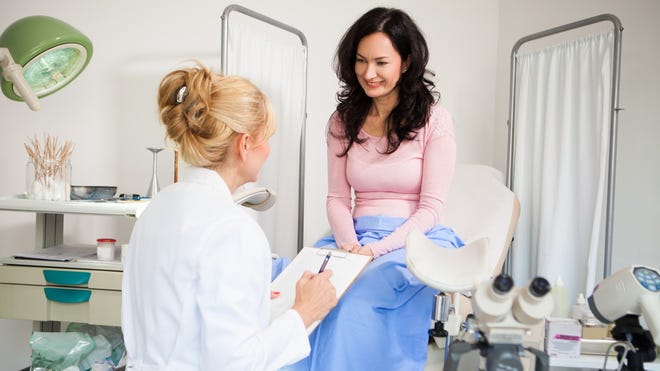
13, Jan 2022
Approximately 14,000 women are diagnosed with cervical cancer each year in the United States.
Cervical cancer occurs when cancer cells arise in the cervix. Precancerous cells in the cervix do not usually cause symptoms until cancer has progressed to the point that it is difficult to treat.
Today, screening tools have significantly reduced the impact of this form of cancer. So let’s use them and get involved.
Two screening tests can help early detection of cervical cancer — a Pap smear along with the Human papillomavirus (HPV) screening test.
Both tests are done in an office setting, primarily as part of well-woman visits.
The Pap smear is a procedure during which cells are collected from the surface of the cervix and examined. The Pap smear looks for precancerous cellular changes on the cervix that might become cervical cancer if left untreated.
The HPV test detects the HPV virus that can cause these cellular changes.
Dr. Mitra's previous 3 columns:
Holiday health: The holiday season is a busy one; keep up with your help for optimum enjoyment
When you gotta go: Suffering from urinary incontinence? Here are ways to help alleviate issues
Lower your risk: Breast cancer kills 40,000 women each year, but early detection has high survival rate
Almost all cases of cervical cancer are caused by human papillomavirus (HPV) infection.
Vaccines that protect against this virus could undoubtedly prevent the disease.
Starting at age 21, doctors usually recommend a pap test every three years, but certain medical conditions or health histories may require more frequent testing.
Please refer to the American College of Obstetricians and Gynecologists for detailed guidelines.
There are three vaccines — Gardasil, Gardasil 9 and Cervarix — U.S. Food and Drug Administration (FDA) approved.
These vaccines prevent infection with specific subtypes of HPV, including the two high-risk HPVs 16 and 18. Please refer to CDC for age guidelines.
Effective vaccines can prevent approximately 90 percent of invasive cervical cancer cases worldwide.
However, HPV vaccination does not treat existing infections or diseases. It prevents new HPV infections.
This is why vaccine works best when given before any exposure to HPV. One should get screened for cervical cancer regularly despite receiving an HPV vaccine.
There are other various ways to help prevent cervical cancer.
Smoking cessation, safe sex practices and limiting the number of sexual partners may lower your risk for cervical cancer.
The best way to promote cervical health is pretty simple. Safe sex practices are always recommended. Sexually active patients should be tested for the Human Papillomavirus and take proactive steps to protect their health further.
If you are experiencing pelvic pain, dysfunctional uterine bleeding in between menstruation, after sexual intercourse, or after the menopausal period, or abnormal vaginal discharge, contact your doctor for a consultation immediately.
Cervical cancer usually develops slowly over time. Vaccination and regular screening are easy steps that can have considerable benefits to your health.
Increasing screening and prevention are critical components of eradicating cervical cancer.
Parents can get their adolescent children vaccinated to prevent future HPV infections. Cervical cancer is preventable and treatable, so do get vaccinated early and have regular screening Pap tests!
Dr. Sue Mitra is a Board Certified Internist and accepting new patients. Call Dr. Mitra at 321-622-6222 for clinical preventive services and discuss how to stay healthy for the holidays.
Dr. Sue Mitra and her staff strive to offer their patients the best care, advice and services available in the medical field with the goal to keep patient healthy & happy.

Dr. Sue Mitra is board certified in international medicine. She is seen here with a Cologuard, which is a noninvasive colon cancer screening test. (Photo by: Tim Shortt/Florida Today)